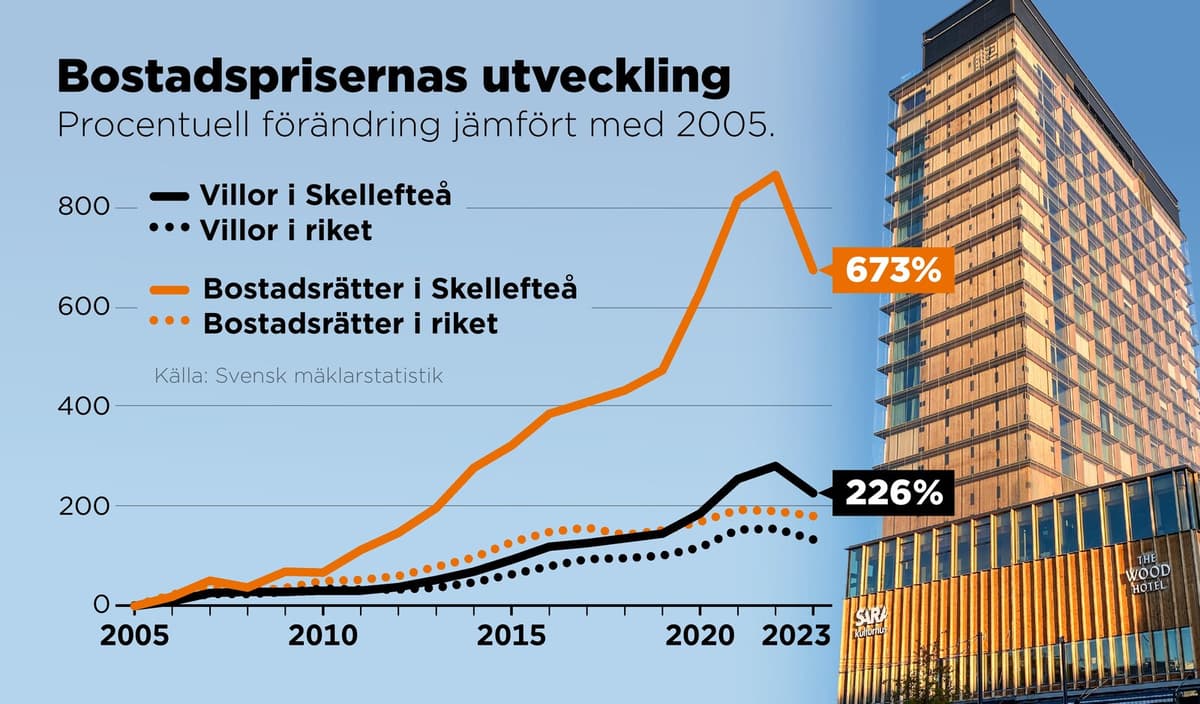There is not much in Skellefteå that suggests that Sweden is in a recession, and that the city's largest private employer Northvolt has laid off a thousand employees in the city, which has also led to subcontractors laying off staff.
Cranes are still reaching for the sky, and everywhere you see facades that have not yet been worn down by many winters' snowstorms.
Some concern
At real estate agent Bjurfors, local CEO Alexander Simonsson says that the turbulence is noticeable, but not much. Last year, they sold 236 properties. Already now, 300 have been exceeded.
It feels like many think it should be perceived as much bigger than it is on the housing market. But people still need to live, he says.
Emma Lindberg at Husman Hagberg thought she noticed some concern the week after the layoff notice.
There have been a few individual cases where someone feels that they might want to wait and see what happens. It could also be that they are sitting on a job that they are a little worried about.
Several real estate agents also testify that the supply is greater than the demand. Perhaps a trend that has been strengthened by the fact that people who previously bought properties as investment objects to rent out to guest workers are now pulling back. But a large supply is usually typical of the autumn, notes Lindberg.
I think many sellers who have been waiting to sell their homes in 2023 have received some positive news with interest rate cuts. So now they want to get out and sell.
Sold better
Lars Lundgren at Riksbyggen says that the company's latest row house project has sold better than forecast, and that a new apartment project has also sold well. The plan to break ground again for a new construction project at the end of 2025 remains.
There are still sales happening. We don't notice that it would be total stagnation, he says.
Fredrik Lindfors at Svensk Fastighetsförmedling says that there is no one selling in desperation, or waiting to buy, since the massive layoff notice on September 23.
Several real estate agents note that very few of the foreign Northvolt workers have managed to buy homes. Many live in barracks, others are hunting for rental apartments. But if Northvolt were to go bankrupt, Lindfors believes it would be noticeable.
First and foremost, it would create a sense of unease among people. So it would likely have an impact. But that unease would probably also be temporary, he says.






